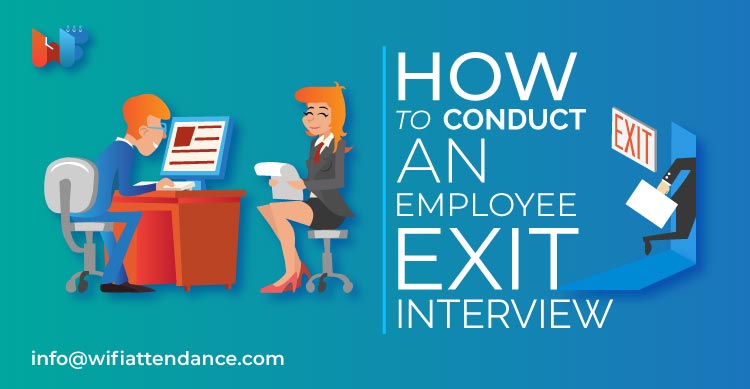
When it comes to conducting exit interviews with candidates, it is more about finding out the reason as to why the employee wanted to terminate his relationship with the company than about getting him or her to stay on.
It is widely recognized that a properly conducted exit interview can provide you with actionable data, and useful information that you can use to streamline your business and even help you take effective measures to retain talent in the form of other employees at your office.
Read Also: 15 Employer Interview Techniques To Find The Best Employees 2019
A properly conducted exit interview can provide you with valuable feedback on the company and what you can do to improve it further – but keep in mind that exit interviews are done to gauge the reason behind the resignation rather than to force an employee to stay on. Here are a few tips on how to conduct an employee exit interview –
The Interview
The first question that should pop into your head is as to who conducts the interview. Generally speaking, it is always advisable for the HR head to conduct the interview and from a logical viewpoint, it makes perfect sense.
The HR head was the one who vetted the employee when he joined up, based on his abilities, strengths and would indeed be the right person to conduct the exit interview as well.
The HR would be more than familiar with the employees’ file, his performance at the office since he joined up, and if the size of the company is quite small, then the CEO himself can conduct the interview.
The point is that the employee feels comfortable in sharing honest feedback regarding the company with someone in charge, someone he knows who may listen to the same.
In the same vein, it would not be a good idea to let the employee’s direct head conduct the exit interview as the employee may not feel inclined to be either frank or honest regarding the feedback or his reasons for leaving the company in the first place.
The questions to ask
Remember that an exit interview is where you gauge the real reason that the employee is quitting in the first place and get him to communicate his views regarding the company. This feedback assumes importance since you can use the same to improve the performance of your company.
And when it comes to the exit interview, it is always good to prepare beforehand and have a template of questions that you can ask the employee.
Of course, the first one also happens to be one of the most common questions that are asked at every employee exit interview, “reasons for leaving?”
In addition, the last one is often quickly followed with “have you shared your concerns regarding the company with anyone”. The point here is that most of the questions are engineered to obtain you a real picture of events, the real reason as to why the employee is leaving and whether he is not comfortable working there any longer.
In fact, you can question the employee as to whether there has been any single event at the office that had caused him to resign, as that should give you a good idea.
And remember to design your questions so that it covers the key areas that you value in your company. And to round things up, you can ask the concerned employee for his feedback by asking him for advice/ suggestions regarding the company and how it currently operates.
Online/offline
Companies these days trend more towards collecting all and most information online. For one, it makes it easier to store data and for another, it enables most companies to utilize and access the same at a later point and even run complex algorithms on it to understand various aspects of the same.
But when it comes to exit interviews, it is always a good idea to conduct it in person rather than through an online form.
As pointed out earlier, an exit interview can provide you with valuable feedback regarding your company and its performance and conducting the same through an online form is going to cause a lot of angst and frustration for the employee.
An employee needs to feel valued and his opinion heard and conducting an online interview is going to cause him to feel ignored and he would be averse to sharing his honest feedback on any online form.
Given this, you may want to conduct the interview in person as the employee would feel validated to an extent and would be keener to share his experiences and feedback with those in charge.
All of this would lead to a positive departure and the employee is more than likely to recommend your company to others as well.
Read Also: 17 Strategies to Improve Communication at Workplace
The approach
This can be a little harder, but generally the most advisable way is to approach the interview confidently and assure the employee that anything and everything he states would remain strictly confidential.
Most employees are often scared, to be frank since they immediately assume that too much frankness can cost them their future prospects elsewhere.
You need to reassure them that any information will remain confidential and will not affect them or their future prospects in any way whatsoever.
You also need to inform the concerned employee and let him know that any feedback he shares will not be communicated directly with his boss or his last team.
Moreover, that any feedback he provides would be shared with the top leadership, as a way to help them perform better and to get them to iron out the kinks (if any).
Summarize
One of the most effective ways to get an employee to share his or her feedback lies in getting them to summarize their working experience.
You can get them to write it down and that should provide you with a good idea as to their current state of mind, reasons that they feel they cannot work in the same company as before and their feedback on their current manager and the rest of their team.
It is always a sound idea to get them to summarize everything and it should provide you with a honest feedback on your company and its current operational setup.
Discard all documentation:
In order to assure the employee that all information would remain confidential, you may want to discard all documentation regarding the interview at the conclusion of the same.
Of course, you may want to retain your official jottings on the interview but the other papers you can discard and even shred the same.
You may want to do this in front of the employee to assure them of the confidentiality of the exit interview itself and that they need not fear any adverse impact on their future careers because of the interview.
Assessment
Once the interview is complete, you need to assess all the information that you were presented with and see if there are ways that you can improve your current organization.
For example, if the employee had valid concerns to convey earlier on but could not do so as there was no official recourse, and is quitting as a result of the same – you may want to make some changes, starting with enabling employees to raise any issue they may come across in the office with the personnel department.
You may also want to check and see if the exit interview provides you with ways as to how you can streamline your business. For example, the employee may have suggested a direct management role in marketing – that is something that you may want to think about, as it affects your company directly.
Read Also: 10 Challenges Faced by HR Managers and How to Tackle Them
Exit interviews are important as they can help provide you with valuable information on how your company operates now.
Please remember that an exit interview is not about determining the truth behind what the employee had to add but in finding out the real reason he is leaving and to determine whether there is anything you can do to help improve your company.
In fact, a well-conducted exit interview can even help make you more competitive.










